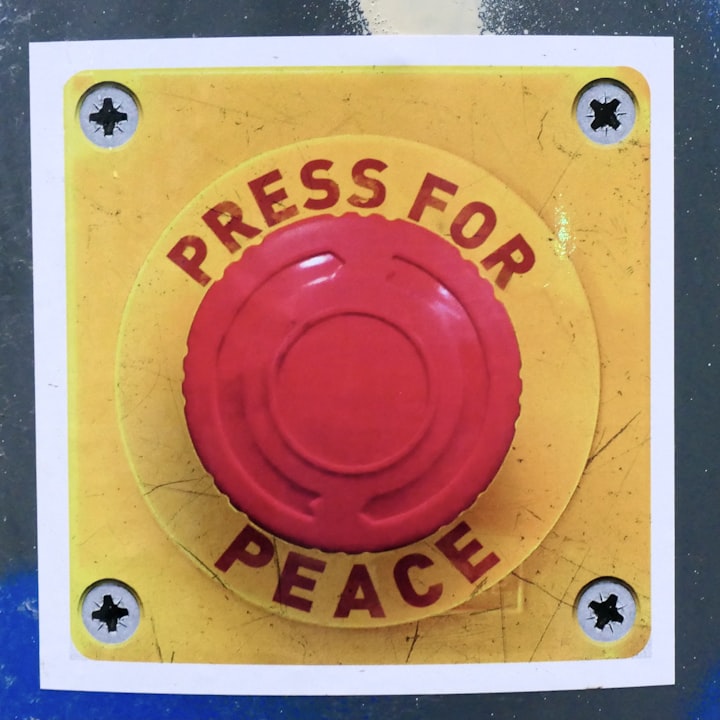Why do Democracies not fight Wars against each other?
Democratic Peace Theory and the Western World

Democratic Peace Theory at Work
It is stunning! Democracies really don't fight wars against each other. Sure, you find some examples where countries are labeled "democracies" and get engaged in war. Still, we speak of fully-fledged democracies, "Western-style," such as Canada, France, Japan, or Australia. And here, indeed, you don't find examples. Why is that? Are democratic countries more peaceful in general? Well, this idea is another subbranch of what is called the Democratic Peace Theory. I will focus only on why they do not fight wars against each other. Autocracies are another issue.
The Nomenclature of Democracy
A fully-fledged democracy is akin to a mature tree in a vast forest; it's not just about the visible branches of free elections (the minimum definition of democracy) but also the roots: the rule of law, protection of civil liberties, the presence of independent media, and effective governance. You may add a low level of corruption, as high corruption induces democratic backlash. These aspects intertwine to create a stable and resilient structure capable of withstanding conflict and tensions. I add a top-20 list of fully-fledged democracies here, based on the analysis of three think tanks. It is always the same countries, and indeed, they have not fought wars against each other since the end of World War II.
The Most Democratic Countries in the World

Sources: Economist Democracy Index, democracymatrix.com https://www.liberties.eu/en/stories/democratic-countries/44818
Now, if we countercheck with the list of countries that allegedly were democracies and fought wars against each other in the second half of the 20th Century, we find conflicts like:
- Ecuador (5,69) vs. Peru (5,92)
- Armenia (5,63) vs. Azerbaijan (2,87)
- Serbia (6,33) vs. Croatia (6,5)
- India (7,04) vs. Pakistan (4,13)
The numbers in brackets show the rating of those countries in the Economist Intelligence Unit 2023 publication. Norway at the same time was at 9,81, Uruguay at 8,91, and Botswana at 7,73, to show the differences. We see that at least one of the countries per conflict shows a somewhat contested state of democracy today, and it was not better during the conflicts mentioned here. Serbia, when fighting Croatia, painted "democracy" on the country's façade; in fact, it was a fully-fledged autocracy under Slobodan Milosevic, who later was facing a trial on crimes against humanity. No, these lists are not convincing at all.
The domestic recipe: Institutional stability
Democratic Peace Theory finds strong backing in the ideals of Immanuel Kant and the principles of liberal internationalism. Fully-fledged democracies tend to live in harmony with each other, which is caused by their institutional strength and stability. These democracies are characterized by a system of checks and balances, making it challenging for any actor in the domestic political system to push for or decide to wage war. In these societies, the decision to go to war is not just a matter of a leader's will, like in medieval times, where the insult of a king by another King could lead to major wars. Instead, waging war is a complex process involving multiple stakeholders, including the public, which often rejects armed conflicts, as they have to go to the trenches, less so top politicians. A milestone in this respect was when the British parliament seized control over the budget, making the King vulnerable to parliament's mood and having to present pretty good arguments when willing to go to war. No money, no war!

This system of checks and balances is organized horizontally between the executive (government) and the legislative (parliament) branches of government and the judiciary (courts). Some political systems maintain, in addition, strong vertical power balances between the federation and the states. We find examples in the US, Canada, Germany, or Belgium. Beyond that, independent and semi-independent agencies and institutional patterns like audit offices, public consultations, and referenda establish modern control layers. Embedded in these safeguards, you must provide excellent arguments to pull the trigger. You will not find them if you want to attack another democracy. Autocracies, to the contrary, usually remove checks and balances.
Civil Society and Public Opinion
The norms and values that permeate these democracies also play a pivotal role. Over time, these societies have cultivated a culture that prizes negotiation over aggression and dialogue over conflict. Respect for individual rights and international law became rooted in our cultures. A myriad of Civil Society Organizations (CSOs) accompany the political process and shape and alter public opinion. This duo of mutual respect and permanent discourse creates an environment where conflicts are more likely to be resolved at the conference table rather than on the battlefield. Transparency and predictability in foreign policy are the cherry on top. Unlike autocratic regimes, where decisions can be made in secrecy, democracies operate under a greater degree of transparency. This openness makes their actions more predictable, reducing the chances of miscalculations or misunderstandings that could lead to conflict.
It's the economy, stupid!
The arguments of proponents of the Democratic Peace Theory make quite a point. Still, critics argue that without the extension of Economic Peace Theory, Democratic Peace Theory would not hold. The economies of fully-fledged democracies are so intertwined and interdependent that the cost of conflict far outweighs any potential benefit. Trade, investment, and cooperative projects bind these nations in a mutual matrix of interaction and dependencies, where war would mean mutual economic destruction. It's a classic case of economic self-interest aligning with the pursuit of peace. Democratic Peace Theory and Economic Peace Theory go hand in hand when identifying security and welfare issues as paramount to stabilizing the international environment.
Interests and values go hand in hand: Prospects for Foreign Policymaking
In foreign policymaking, interests and values stick side by side, sometimes with different percentages, but neglecting one side would be counterproductive. That means that fostering democracy leads to more stable peace and more welfare. Still, suppose you enforce democratization with the might of arms and wage war to obtain peace. In that case, if you enforce regime change without a plan for the time after and without a population on the ground asking for their civil rights and liberties, you may produce the opposite of what you wanted to achieve. For the countries of the West and the family of fully-fledged democracies, that would mean running policies that encourage and assist those countries that have already started the long journey to democracy, based on the demands of the population, make sense. We must find something else for all the autocracies: maybe more sticks than carrots.
About the Creator
Jurgen Dieringer
J Dieringer is a professor of international relations by profession and a musician, writer, and chess player by passion. He strives to merge those inputs and tackle the intersection of arts and science.






Comments
There are no comments for this story
Be the first to respond and start the conversation.